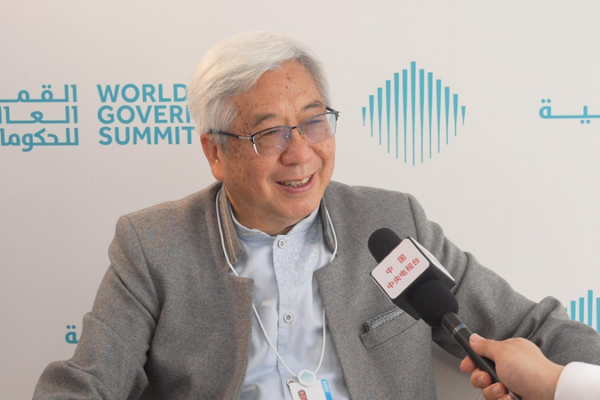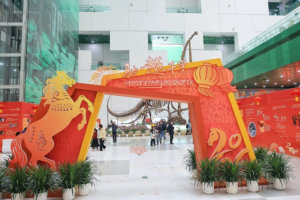
Middle East Escalation Puts Civilians in ‘Grave Danger,’ Red Cross Warns
ICRC warns of devastating civilian consequences as Middle East military escalation triggers dangerous chain reactions in 2026 conflicts.

UAE Airports Restart Limited Flights Amid Gulf Security Concerns
UAE resumes limited airport operations after Iran-linked security closure, easing travel disruptions while maintaining heightened safety measures amid Gulf tensions.

UK Prioritizes Diplomacy Over Military Action in Iran Crisis
UK Prime Minister Keir Starmer defends diplomatic approach to Iran tensions, emphasizing defensive measures and international law amid US criticism.

Energy Prices Surge, Global Markets Slide Amid Iran Conflict Fallout
Global energy prices spike and stock markets tumble as Iran conflict escalates, disrupting key trade routes and investor confidence in 2026.

Deadly Clash in South Sudan’s Ruweng Leaves 169 Dead, Peace Deal Strained
At least 169 killed in Ruweng Administrative Area attack, raising concerns over South Sudan’s fragile peace process. Children, officials among victims.

New Book Chronicles Xi’s Leadership in China’s Historic Poverty Victory
New publication details CPC’s poverty eradication strategy under Xi Jinping, featuring grassroots stories and policy insights from China’s historic campaign.

Ethiopian Airlines Halts Flights to 10 Middle East Destinations Amid Security Concerns
Ethiopian Airlines suspends flights to 10 Middle East cities, including Dubai and Doha, citing airspace closures and security concerns. Passengers advised to check flight status.

South African Rand Slumps Amid Middle East Tensions, Investors Seek Safety
The South African rand weakened to 16.16 against the dollar as Middle East tensions drive investors toward safer assets, impacting emerging markets.

China-Zimbabwe Ties Deepen with Focus on Green Energy, Trade
Zimbabwe’s ambassador outlines expanded cooperation with China in green energy and mineral processing, building on historic political ties and shared development goals.

CGTN Launches ‘Very Chinese Time’ Quiz Aligning Careers with National Goals
CGTN’s new interactive quiz ‘Very Chinese Time’ helps users explore career paths aligned with China’s 2026 five-year plan, offering personalized insights and future job trends.

China Reaffirms Support for Iran’s Sovereignty in Key Diplomatic Talks
Chinese Foreign Minister Wang Yi reaffirmed China’s commitment to supporting Iran’s sovereignty and territorial integrity during a phone call with Iranian counterpart Seyed Abbas Araghchi.

China, France Urge Restraint Amid Iran Tensions in High-Level Talks
Chinese and French foreign ministers discuss Iran tensions, opposing military intervention and advocating diplomatic solutions in high-level phone talks.

Iran Appoints Acting Defense Minister Amid Escalating Regional Tensions
Iran appoints new defense chief after deadly U.S.-Israeli strikes, escalating regional tensions and global economic concerns in March 2026.

Wang Yi Urges Immediate Ceasefire in Middle East to Prevent Conflict Spillover
Chinese Foreign Minister Wang Yi calls for an immediate ceasefire in the Middle East, emphasizing conflict containment and regional stability during talks with Oman.

Rare ‘Blood Moon’ Eclipse to Grace Skies Across Asia and Beyond
A rare total lunar eclipse will illuminate skies across Asia, North America, and Australia on March 3, 2026 – the last until 2028-2029. Discover when and where to watch.

Hong Kong Bridges Chinese Mainland with Global Markets, Says Expert
Dr. Eric Li highlights Hong Kong’s role as a global connector for Chinese mainland companies, emphasizing capital markets and professional services ahead of the 2026 Two Sessions.

Lights-Out Factories Revolutionize Asian Manufacturing in 2026
AI-powered ‘lights-out’ factories achieve 99.8% accuracy in China’s automated manufacturing revolution, reshaping Asia’s industrial landscape in 2026.

CPPCC Concludes Key Session, Emphasizes Economic Growth and Cross-Strait Dialogue
China’s top political advisory body concludes 2026 session, prioritizing economic innovation and cross-strait dialogue under Wang Huning’s leadership.

Fantawild Revives Eastern Myths with Tech-Driven Theme Parks in China
Chinese theme park Fantawild combines ancient mythology with advanced technology, reshaping cultural tourism in Asia’s booming entertainment sector.

Middle East Tensions Threaten Global Oil Stability, Analysts Warn
Analysts warn escalating Middle East tensions could disrupt oil flows through the Strait of Hormuz, risking global price surges. Key developments expected in coming weeks.













